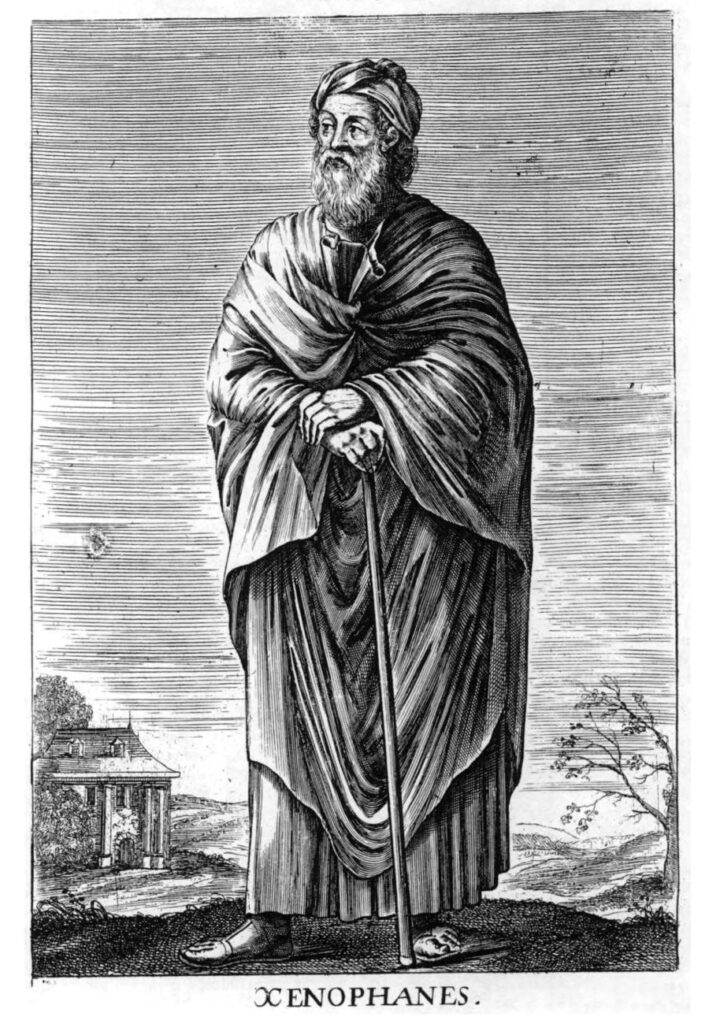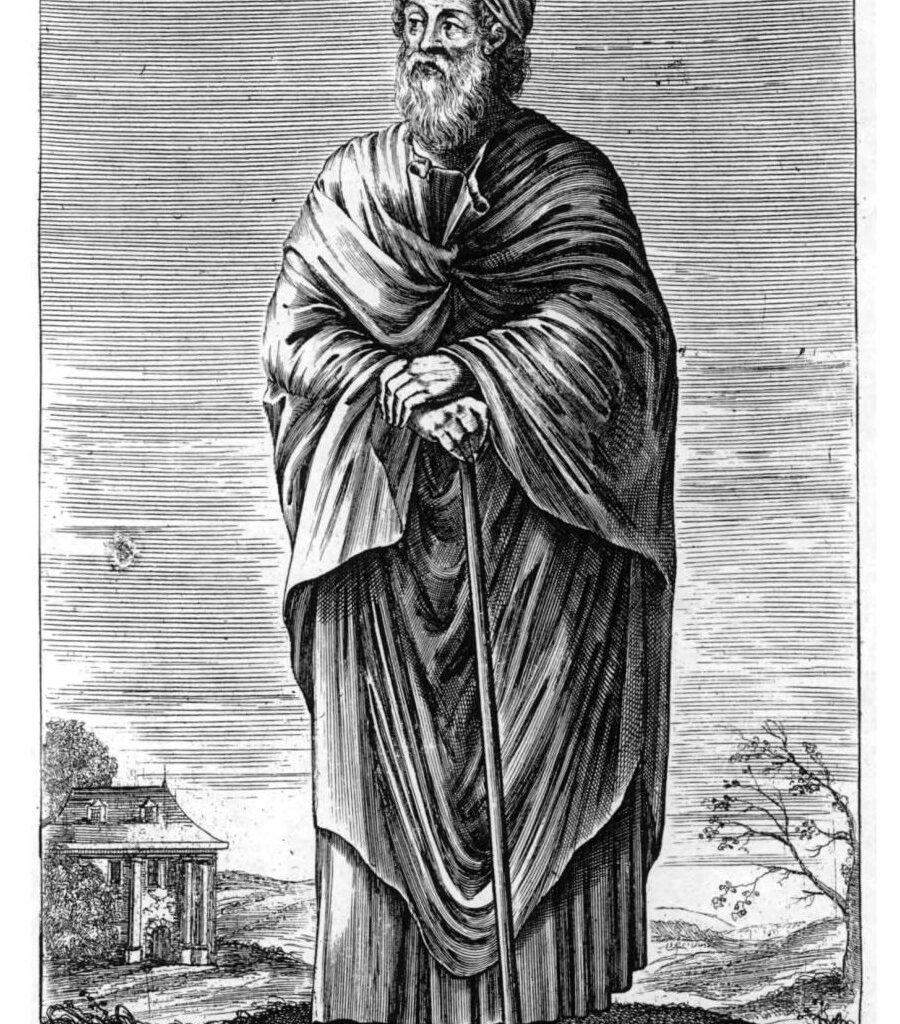
What is science? As I use the word, it refers to the activity we are engaged in when we apply the ‘scientific method’: a tool kit of techniques we have developed over the last few hundred years in trying to understand how the universe works. The cornerstone of science is empirical observation: theories are developed in response to, and tested by, our acquiring data, conducting experiments, looking through telescopes and microscopes, and so on.
Religion is typically focussed on answering questions such as why the universe exists; what makes things morally right or wrong; how we should live; and what might be the ultimate meaning and purpose of our existence. Typically, it also emphasises the importance of what we might call other ways of knowing. In particular religions often suggests that religious scripture, experience and revelation are able to provide answers to such questions.
Science and religion are often thought to be in conflict. Certainly, some scientists are dismissive of religious claims, insisting that they are all false. For example, in The God Delusion, Richard Dawkins argues that ‘science’ shows there is probably no God.
On the other hand, many religious people, including many scientists, maintain that those who try to use science to undermine religious claims are guilty of a misunderstanding. They insist that critics like Dawkins fail to appreciate that, while empirical, observation-based science is certainly a powerful tool for investigating the physical universe, it is in no position to adjudicate on matters that transcend the physical universe, including the divine.
The thought that science and religion are concerned with entirely different domains, and that one cannot properly encroach on the territory of the other, has been articulated by the scientist Stephen J. Gould, who maintains that science and religion are ‘non-overlapping magisteria’. Gould writes that science
‘tries to document the factual character of the natural world, and to develop theories that coordinate and explain these facts. Religion, on the other hand, operates in the equally important, but utterly different, realm of human purposes, meanings, and values—subjects that the factual domain of science might illuminate, but can never resolve.’ (Gould 2002: 4 – see bibliography below.)
According to Gould, whether or not souls exist is a question that lies beyond the ability of science to settle:
‘But I also know that souls represent a subject outside the magisterium of science. My world cannot prove or disprove such a notion, and the concept of souls cannot threaten or impact my domain.’ (Gould 2012: 575)
Such ‘big questions’, Gould thought, are the proper business of religion. However, religion is not well-placed to address questions about, say, the way the Earth was formed and life appeared. That is a matter for science to settle. When religion begins to encroach on the province of science, and vice verse, trouble follows. Scientists and theologians need to stay in their own lanes.
Defenders of religion often add that to suppose that science is potentially a threat to religious belief is to be guilty of ‘scientism’ – of supposing that empirical science is in a position to answer every meaningful question. They insist that scientists like Richard Dawkins should show a little humility and acknowledge that there ‘more things in heaven and Earth than are dreamt of in your philosophy,’ and even that there are other ‘ways of knowing’.
So what is the answer? To what extent is empirical science a threat to religious belief? Are there ‘other ways of knowing’?
My view is that empirical science can pose a very significant threat to religious belief. But before I explain why, let me acknowledge that, yes, scientism is almost certainly false.
I am a philosopher, not a scientist, so you might expect me to want to carve out some intellectual territory specially for philosophers: questions that require philosophical reflection to answer, rather than an application of the scientific method.
It does seem to me that many, perhaps all, philosophical puzzles are at heart purely conceptual puzzles. To solve a purely conceptual puzzle, empirical investigation is unnecessary. All that is required is reflection on the concepts involved – and that is an armchair activity. We do not need to engage in observation of the world.
Here is a simple example of a conceptual (if not philosophical) puzzle. At a family party, all of the following familial relations hold between attendees: Son, Daughter, Mother, Father, Aunt, Uncle, Niece, Nephew, and Cousin. The puzzle is: could there be just four people at the party? At first sight, it might seem that there must be many more people than that present at the party if all of those relationships are to hold between them. However, a little armchair reflection reveals that, in fact, only four people need be present (e.g. a brother with his son and his sister with her daughter). Notice that this puzzle is solved, not by engaging in empirical science, but by armchair reflection. So there are puzzles empirical science cannot answer but other methods can.
Of course this puzzle about family members is not a philosophical puzzle. Nevertheless, in my opinion, most philosophical puzzles are similarly conceptual in nature and will be solved, if they are solvable at all, by armchair methods, not empirical science. Take for example the ‘mind-body’ problem. There seems to many of us, philosophers and non-philosophers alike, to be some sort of obstacle to minds being something physical: an obstacle revealed by armchair reflection. By ‘pain’, they might suppose, I mean this (I now focus my attention on my inner subjective pain experience), and I can know, just by reflecting on what I mean by ‘pain’, that pain could not turn out to be something physical. But perhaps this obstacle is illusory. Perhaps, just as it seemed that there was a armchair obstacle to there being only four people present at the party, so it might seem that there is an armchair obstacle to mind being body. Perhaps, by engaging in armchair reflection, we can show that the obstacle is also illusory. In which case the philosophical puzzle of how mind could be physical will have a non-scientific, armchair solution, even though exactly how physical activity in the brain gives rise to consciousness will remain a question for science to answer.
Other stock counter-examples to scientism include moral questions. As David Hume pointed out, moral questions concern what we ought or ought not to do, while direct observation of the world reveals only what is or is not the case, and it appears we can never justify an ought conclusion by appealing only to such is facts (this is the famous ‘is/ought gap’). But then empirical science alone cannot answer moral questions.
Yet another counter-example to scientism is provided by the question, ‘Why is there anything at all?’ This question seems meaningful. Yet, because scientific explanation necessarily involves invoking some cause or law which scientists have discovered and which accounts for why so-and-so is the case, it seems that there must always be some cause or law that goes unexplained. For example, some scientists have attempted to explain the Big Bang through quantum tunnelling, which can explain the appearance of subatomic particles from a vacuum (see Carroll 1988), but this explanation just presupposes the existence of quantum tunnelling and the laws governing it. In which case, science still has not explained why there is something rather than nothing. Indeed, how could it: whatever science posits to explain why there is something rather than nothing is inevitably just more ‘something’.
In short, scientism, understood as the claim that empirical science can answer every meaningful question, is false. Does that mean that God and religious claims are off-limits to science? Not at all. While some things may indeed be off-limits to empirical science, it does not follow that God or religious claims are.
The assumption that most often seems to drive the thought that such claims are off-limits is that they concern the supernatural or unobservable, and that empirical science is necessarily restricted to the natural or observable realm. That assumption is false.
First, science can pretty conclusively confirm or refute claims about the unobservable. The distant past of this planet is necessarily unobservable. Subatomic particles are necessarily unobservable. Very distant objects are necessarily unobservable. That does not mean science cannot pretty conclusively establish their existence or non-existence. That is because, while what is posited may be unobservable, hypotheses about unobservables can nevertheless have observable consequences. We can experimentally confirm the existence of electrons or the Higgs Boson, for example. And we can establish beyond reasonable doubt facts about the distant past of this planet, such as the previous existence of dinosaurs.
Similarly, then, claims about God, and the supernatural more generally, are capable of being pretty conclusively confirmed or refuted by science in so far as those claims have empirically observable consequences. And many such claims do.
Take the religious claim that God answers petitionary prayer. God may not be observable, but heart patients are, and several multi-million dollar, double-blind, carefully conducted studies on the effects of petitionary prayer on heart patients have been made. These studies have shown, pretty conclusively, that such prayer does not work: it offers no benefit for heart patients.
Or take the religious claim that the universe was created by God less than six thousand years ago. That religious claim has been conclusively scientifically refuted. We may not be able to observe the Earth as it was many thousands or even millions of years ago, but what we can observe establishes beyond any reasonable doubt that the Earth is much more than six thousand years old.
What about the claim that God exists? Surely at least that claim is off-limits to science?
Again, not if the claim has empirically observable consequences. Consider the suggestion that there exists an all-powerful, all-knowing, and supremely malevolent god. Almost no one believes in a god like that, and for good reason: such a deity would surely have created a much nastier world than this. Yes, there is pain, suffering, and moral horror in the world, but there is also a great deal of good – far too much good for this plausibly to be the creation of such an evil deity. If it were the creation of an evil god, then the world would look a lot more like a hellscape than actually it does.
But if we can reasonably rule out such an evil deity on the basis of observation, why cannot we reasonably rule out a good god on the same basis? Yes, the world contains much good. But it also contains horrendous pain, suffering and moral horror – far too much for it plausibly to be the creation of a supremely powerful and benevolent deity.
In short, the supernatural and the divine are not necessarily off-limits to empirical inquiry or science. Indeed, the Catholic Church concurs: its ‘Dicastery for the Causes of Saints’ uses medical experts to investigate miracle claims. Many theists also believe that scientific discoveries about the fine-tuned nature of the universe provide significant support for belief in God. It is only when science is perceived to be a threat to religious and other supernatural beliefs that a veil is drawn and we are told that what lies behind the veil is off-limits to science.
It is possible to protect claims about God from being falsified by whittling away at what we mean by ‘God’. A God that is all-powerful and all-evil would appear to be something that we can fairly straightforwardly falsify by looking out of the window for five minutes: too much love, laughter, ice cream and rainbows. The same applies to a God that is all-powerful and all-good. But what if by ‘God’ we mean much less: a being that is all-powerful, but neither good nor evil, for example. The distribution of goods and evils in the world is no threat to belief in a God like that.
Still, there remain many other potential threats to belief in God. For example, if God is still supposed to be a person with beliefs and desires on which he acts, then how it can make sense to suggest that such a being could exist timelessly as the creator of our spatio-temporal universe? Beliefs and desires are psychological states, and states have duration, which requires time. A non-temporal person seems to make about as much sense as a non-spatial mountain.
Still, as the philosopher Antony Flew points out, you can always further defend belief in God by whittling away still more, so that ‘God’ becomes a symbol for, well, not even a ‘thing’ but a cosmic doodah: something ineffable and beyond human comprehension.
Now it certainly is difficult to refute the claim that there is an ineffable cosmic doodah. However, those who narrow their concept of God in order to deal with such threats to their belief often do so inconsistently. When a critic takes aim, some defenders insist that the critic has missed the target – that what they have refuted is not what the religious person actually believes. However, at other times these same religious people may insist that their God is not so ineffable and incomprehensible after all. They may suppose, for example, that we can nevertheless know that God is deserving of our praise and gratitude. They adopt a ‘now-you-see-it, now-you-don’t’ routine, evasively switching back and forth between inconsistent positions in order to maintain belief.
The riposte that ‘this is beyond the ability of science to decide’ has become a mantra in some religious circles – a form of words endlessly repeated to the point where it can easily hypnotise and lull back to sleep anyone who has been momentarily stung into doubt by critics like Dawkins. But, as we have seen, the truth is that many religious and other supernatural claims are not off-limits to science. Religious belief may concern the otherworldly, but that does not make it immune to scientific refutation.
Bibliography
Carroll, William E. (1988), ‘Big Bang Cosmology, Quantum Tunneling from Nothing, and Creation’, Laval théologique et philosophique, vol. 44, n° 1, pp. 59-75.
Flew, Antony (1971), ‘Theology and Falsification’, in Mitchell, B. (ed.), The Philosophy of Religion, Oxford University Press.
Gould, S. J. (2002), Rocks of Ages , London: Vintage.
Gould, S. J. (2012), ‘Nonoverlapping Magisteria’, in Pojman, L. and Rae, M. (eds.), Philosophy of Religion: An Anthology, Wadsworth, pp. 568-577.









Your email address will not be published. Comments are subject to our Community Guidelines. Required fields are marked *
Donate